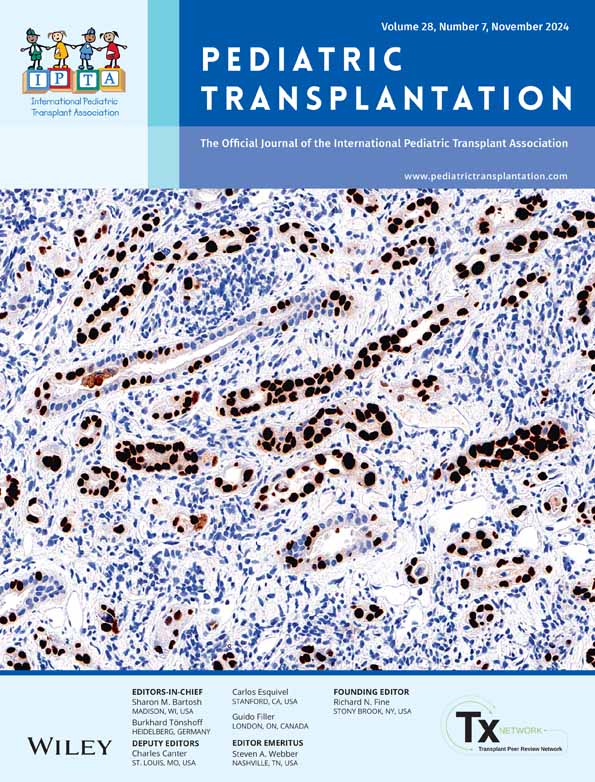Donor Characteristics and Outcomes of Pediatric Heart Transplantation in South Korea
Funding: This study was supported by Seoul National University, College of Medicine, Department of Pediatrics Alumni.
Susan Taejung Kim and Hyewon Shin contributed equally to this work.
ABSTRACT
Background
Heart transplantation is often limited by the availability of transplantable donor heart and understanding of donor aspects that would influence transplant outcomes becomes important. In this study, donor characteristics and their impact on the outcomes of pediatric heart transplantations performed in South Korea were investigated.
Methods
We reviewed the medical records of patients less than 18 years old who received heart transplantation between 2002 and 2022 in three tertiary hospitals located in South Korea.
Results
A total of 139 cases were enrolled. One-year mortality was 10.4% and total mortality was 33.8%. Forty-nine recipients (35.3%) showed biopsy-proven rejections and 20 (14.4%) showed cardiac allograft vasculopathy during mean follow-up of 6.4 ± 4.9 years. Six recipients (4.5%) showed left ventricle ejection fraction of less than 55% post-transplantation. The mean age of the donors was 23.0 ± 15.4 years. The most common cause of death of the donors was unspecified illness (46.4%). Donors with a history of diabetes, hypertension, smoking, and alcohol consumption were 0%, 3.1%, 32.1%, and 34.4%, respectively. Mean total ischemic time was 191.6 ± 72.7 min, while total ischemic time was over 4 h in 37 patients (26.6%). There were no significant relationship between donor factors and survival. However, donor's history of drinking or cardiopulmonary resuscitation was significantly associated with acute rejection and donor's age with cardiac allograft vasculopathy.
Conclusion
Donor factors did not show significant impact on post-transplant survival but some factors were predictive of post-transplant rejection and cardiac allograft vasculopathy.
Conflicts of Interest
The authors declare no conflicts of interest.
Open Research
Data Availability Statement
The data that support the findings of this study are available on request from the corresponding author. The data are not publicly available due to privacy or ethical restrictions.




